The Love Story Behind Come From Away
The important thing to remember about Come From Away, now playing at the newly restored Royal Alexandra Theatre through January 8 prior to its Broadway opening, is that it’s a love story.
On one level, it’s the story of the mutual devotion that erupted between 6579 airline passengers from around the world when their planes were grounded in Newfoundland in the aftermath of 9/11 and the people of Gander who took them in. And in another sense, it’s about Toronto lawyer Michael Rubinoff’s infatuation with this story and his desire to bring it to the musical theatre stage.
But most of all, it’s about the husband and wife team of Irene Sankoff and David Hein, who picked up Rubinoff’s challenge to write the show, researched it exhaustively, and then saw it through numerous workshops and productions before landing it safely here.
Most people have been so busy telling the story of the show itself that they’ve left out the more intimate but equally winning saga of Irene and David.
But we’re righting that balance today, early on a crisp autumn morning—not too early because that’s not how Sankoff rolls.
“I don’t like mornings,” laughs Sankoff. “In fact, when I was pregnant with our daughter Molly, we joked that I never got up early enough to have morning sickness.”
Molly, now three and a half, is at school on this particular day, so it’s just Sankoff and Hein in their bright, cheery home in the East York area of Toronto.
They’re a comfy couple who look as happy as they are, combining the best qualities of romcom and sitcom.
What do they look like? Hein has the classic “charming dad” look of a beloved TV series, with an endearingly rumpled air reminiscent of Dick Van Dyke’s iconic Rob Petrie. But Sankoff is more like Valerie Harper’s Rhoda Morgenstern, with a warm smile, a husky voice, and a ready way with a quip.
How did this pair get together? Hein tries to explain.

Irene Sankoff and David Hein
“We met on the first day of university at York in the theatre program. That we agree on. But we disagree on precisely when.”
“I’m sure it was the welcome BBQ,” says Sankoff in a tone that brooks no disagreement.
“She’s wrong,” Hein dares to venture . “It was the welcome pancake breakfast.”
Sankoff’s jaw sets just a bit. “They didn’t even have a pancake breakfast that first week. It was the opening BBQ. Drop your stuff in the dorm, come on down, have something to eat and meet the man you’re going to marry.”
Hein throws up his hands in submission. “She actually has a much better memory than me.”
Regardless of where and when it happened, was there instant chemistry between them?
“I’m not sure if it was love,” suggests Hein, “but it was something at first sight.”
Sankoff sets the record straight. “We were both seeing other people at the time and continued for about a year and a half. But we were very good friends and we got along instantly.
“I was very serious about getting terrific grades. I had a double major in psychology and theatre. I remember I came fourth in my first-year psychology class and got very depressed.”
“I was a good student, too,” insists Hein sheepishly.
“Yeah, but you went out,” counters Sankoff, spitting the word out like a malediction. “I hadn’t seen a movie since, er, The Little Mermaid.”
So her heart belonged to Disney musicals?
“I always loved all musicals. The first one I ever saw was Guys and Dolls. And Les Mis was a huge influence on me. My mom took me to it twelve times and then we stopped, because I thought thirteen was unlucky in those days.”
While Sankoff was storming the barricades, Hein was on his own musical journey.
“My mom took me to the Winnipeg Folk Festival. And I loved Newfoundland music too. Great Big Sea. Figgy Duff. The world of the singer-songwriter. I think I wanted to be Jim Cuddy.”
Sankoff has her return volley ready. “I wanted to be Donna McKechnie. God, when I saw A Chorus Line at Stratford this summer, I wept all the way through it. I knew it by heart.”
Her mention of the classic musical leads Hein to a sort of playwriting epiphany. “You know the dramatic bones of Chorus Line and Come From Away are really very similar. The anecdotal structure, the interviews that shaped it. The whole thing.”

Photo by Matthew Murphy
But then it’s back to their slow-growing romance.
“It wasn’t one thing that brought us together,” reasons Hein. “We just started hanging out a lot.”
Sankoff shakes her head ruefully. “David was very goofy. I got my first B after we started hanging out together.”
He laughs. “Yeah, we started hanging out. And then we started…” His voice drops an octave. “… HANGING OUT!”
They look at each other fondly. “No one in my life was like David,” admits Sankoff. “They were all so focused and serious and he was so, well, goofy.”
“You use that word to describe me a lot,” says a slightly hurt Hein.
“But you were, David,” insists Sankoff gently. “You were.”
After their time at York, Sankoff went to New York City to work on her masters in theatre at NYU and Hein followed, landing an internship making music for The Muppets. (His undergraduate major was set and lighting design.)
They were living at International House, a residence for foreign graduate students attending NYU, which Hein describes as “a kind of dress rehearsal for what happened to Gander in Come From Away. There were people from 110 countries all around the world. An amazing community. Every month there would be celebrations. We’d dress up like characters from our country. Irene was Anne of Green Gables, I went with a friend as Bob and Doug Mackenzie.”
But then came 9/11. Even after all this time, the two of them grow quiet remembering it.
“My cousin was working in one of the towers,” says Hein softly, “but she got out.”
They both remember how life went on a few days later—especially theatrical life. “I was acting in an Ionesco Festival at the time,” says Sankoff, “and David was designing a play called The Dreamer Examines His Pillow.”
They had gotten engaged and were planning to eventually tie the knot in Toronto, but one night, Hein said “let’s get married now.” So they eloped to City Hall, four blocks from Ground Zero. They had a larger, more formal ceremony in Toronto the next year.
After they returned to Toronto their lives just kind of chugged along for a while, with Hein recording several albums of his songs and designing over sixty shows, until he “got burned out painting the set overnight for no money.”
Sankoff kept busy “as a receptionist, as a tutor for kids, and as a member of the cast of The Mousetrap at the Toronto Truck Theatre.”
But they weren’t spending much time together.

Photo by Matthew Murphy
“So in 2009, we said ‘Let’s hang out this summer and write a show.’”
And they did. The result was My Mother’s Jewish Lesbian Wiccan Wedding, based on true events in Hein’s life.
They discovered their own personal writing dynamic. “David is the one who puts things down on paper first,” says Sankoff. Hein counters with: “And Irene is the editor who tears it apart and makes us rewrite it fifty times until we get it right.”
Sankoff smiles. “I don’t know how you write with someone you’re not married to.”
Hein replies: “I heard someone say that writing is fighting.”
“No. WE say that,” snarks Sankoff.
“Yeah,” agrees Hein. “We like to write in a coffee shop. Because there are witnesses.”
The show found a berth at the Fringe, proved to be a huge popular hit, then got picked up by Mirvish Productions for a successful transfer to the Panasonic.
Enter Michael Rubinoff, well-known theatrical lawyer and associate dean of Performing Arts at Sheridan College, which is known for its highly regarded musical theatre program.

Irene, David, and Michael Rubinoff
“He asked to meet us,” Sankoff remembers, “and we were so nervous. It was like an interview. Very formal, and he just asked us a lot of questions. We didn’t think it went very well.”
But it didn’t end there. Hein points out that they met again over mac and cheese in Kensington Market and got to know each other a lot better.
“He told us his idea about writing a musical about the events in Gander when all the planes landed there after 9/11,” Hein enthuses. “I loved it. I loved the story of Gander being this giant airport where the world used to come to refuel, then planes got bigger and the world stopped coming. And then, the world came back again.”
What Sankoff loved were the individual stories: “Like Bonnie, who took care of all the animals that wound up there.” Rubinoff was warmed by the show’s overall humanist message. But despite their different points of view, they all agreed on one thing. Hein sums it up: “This wasn’t a 9/11 story. It was a 9/12 story.”
From that point on, it kept moving steadily, with a lengthy research trip for Sankoff and Hein to Gander for the tenth anniversary of the event in 2011, two student workshops at Sheridan College in 2012 and 2013, and then a whirlwind courtship by the American musical theatre scene, from the National Alliance for Musical Theatre, through the workshop process at the Goodspeed Opera House, to a trifecta of record-breaking productions at regional theatres in LaJolla, Seattle, and Washington, D.C, with unanimous rave reviews at every stop along the way.
How did Sankoff and Hein cope with this crazy ride?
“I’ve always compartmentalized this,” shares Sankoff. “I’d say, ‘Now we’re in Seattle, let’s take Molly to play in the fountain. Now we’re in LaJolla, let’s go look at the ocean.’ But when I saw on Facebook that all our cast and designers were coming into Toronto, then I thought my worlds were colliding.”
The regular moms and dads that Sankoff and Hein hang out with can’t quite understand that, depending on the response to the show when it opens on Broadway, they might either be very wealthy, or have to scramble to make a living.
“Our Muggle friends think what we’re doing is so risky,” allows Hein. “They think it’s like playing slots with your life.”
But for this couple who are as in love with their chosen profession as they are with each other, there’s no turning back.
“It’s not that I wouldn’t do anything else,” admits Sankoff. “It’s that I couldn’t do anything else. I was no good working in the real world. No good at all.”
“We used to argue whether or not theatre could change the world,” says Hein. “I think it can.”
“I don’t,” snaps Sankoff. Then she softens. “Or I used to think it couldn’t.”
Come From Away is on at the Royal Alexandra Theatre until January 20, 2019 and moving to the Elgin Theatre in February 2019.
For tickets or more information, click here
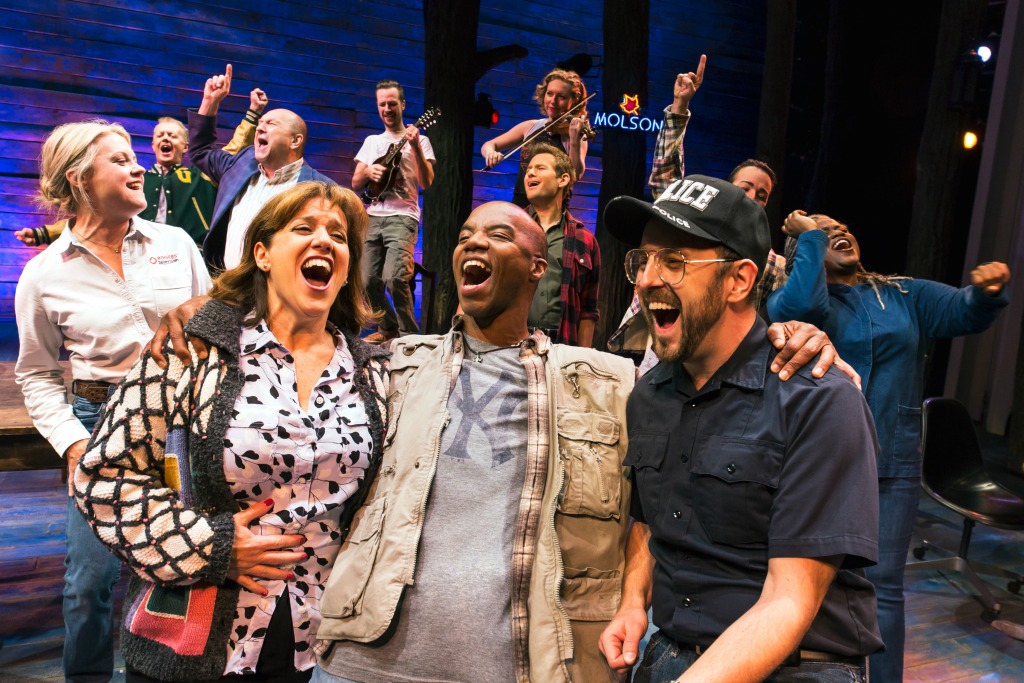
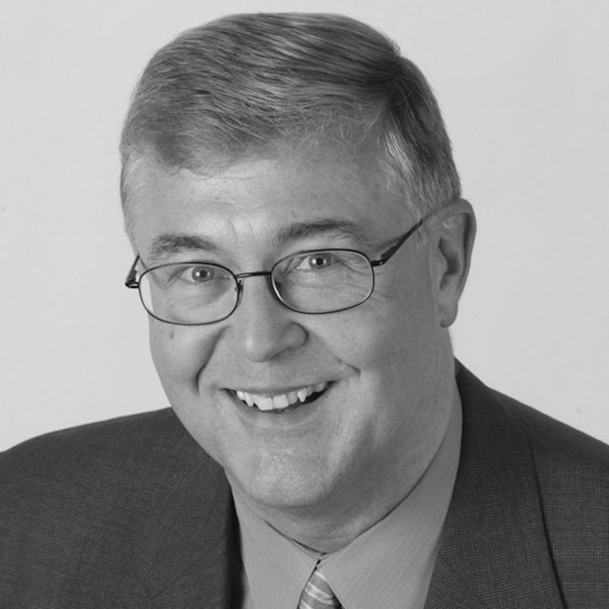
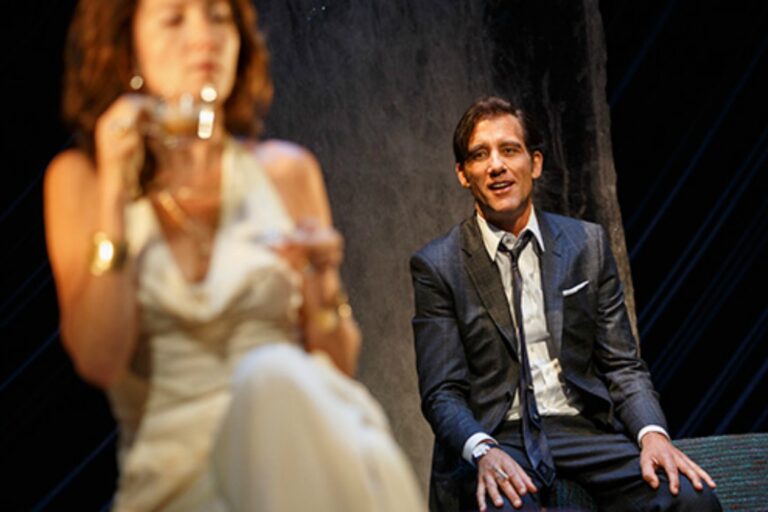
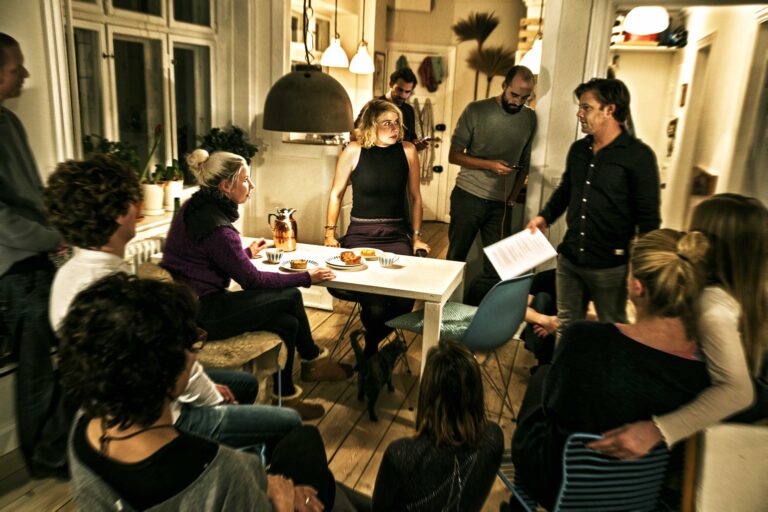
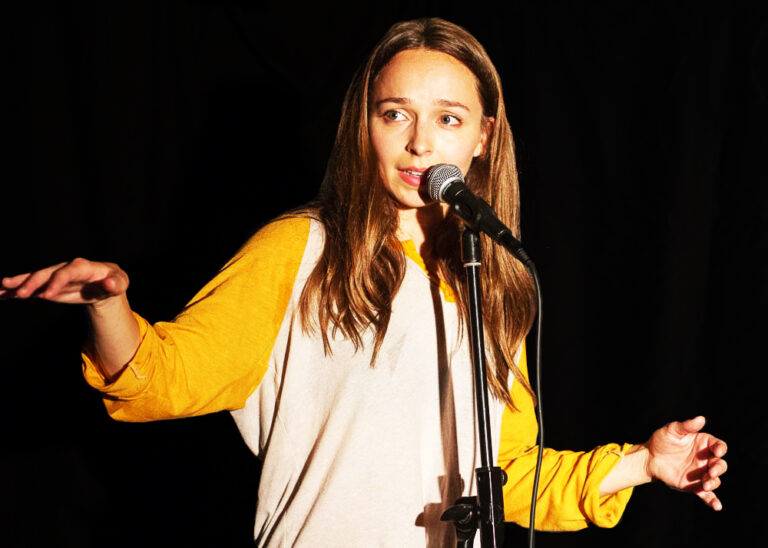
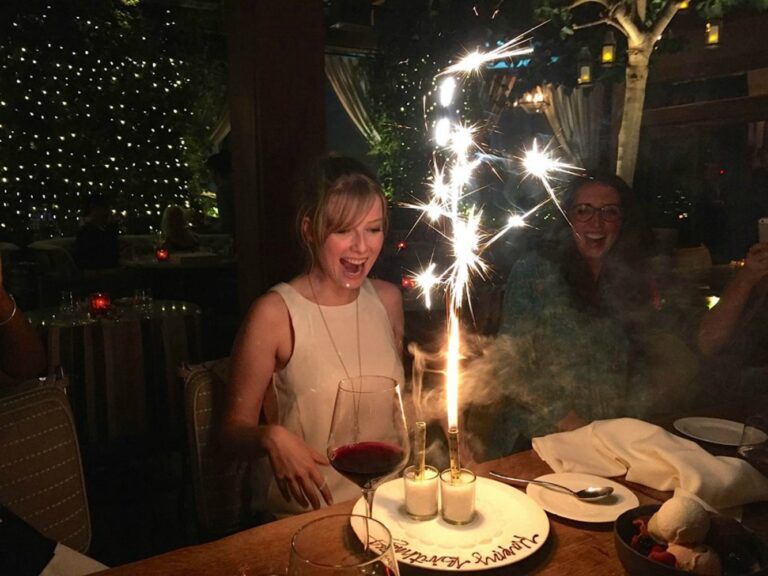
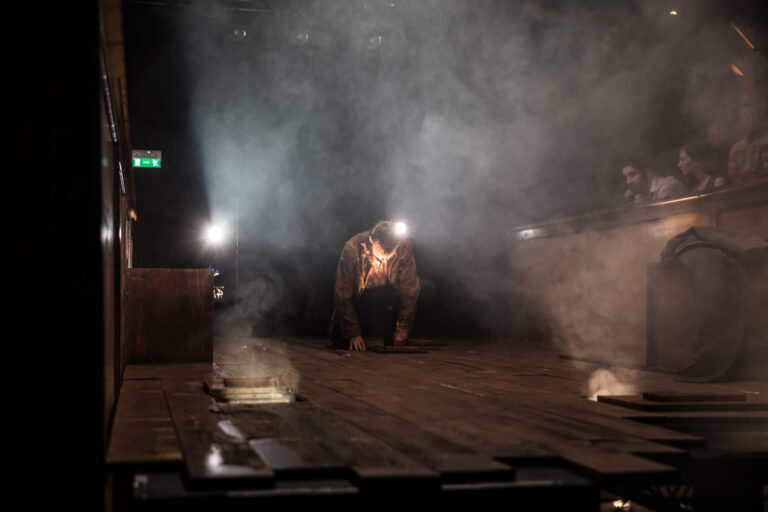
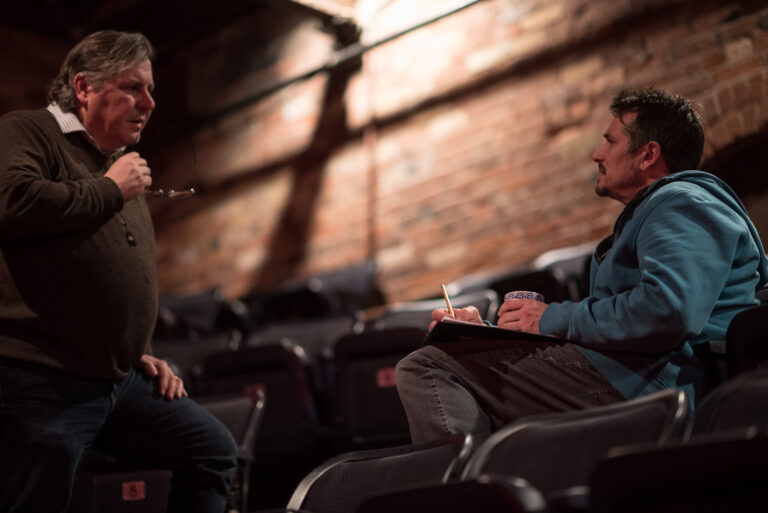
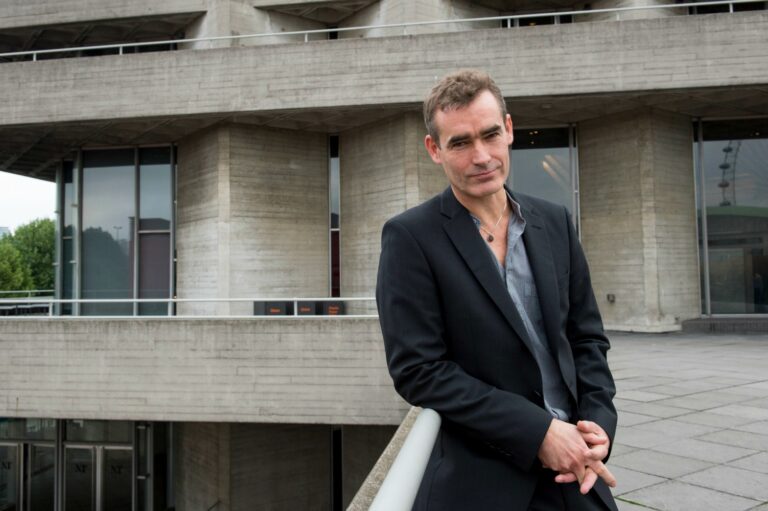
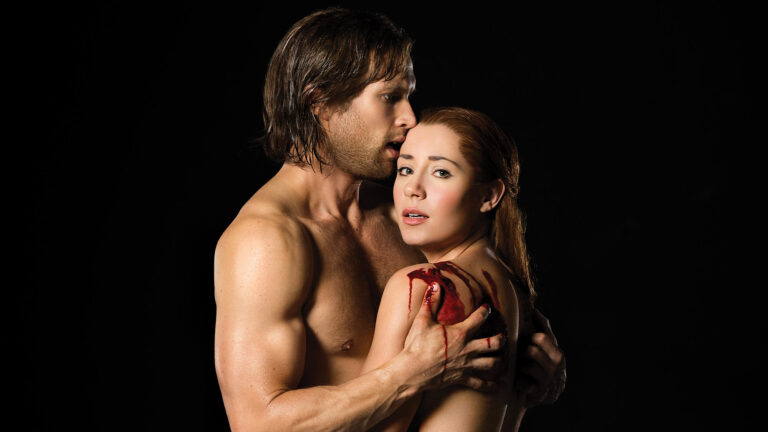
Comments